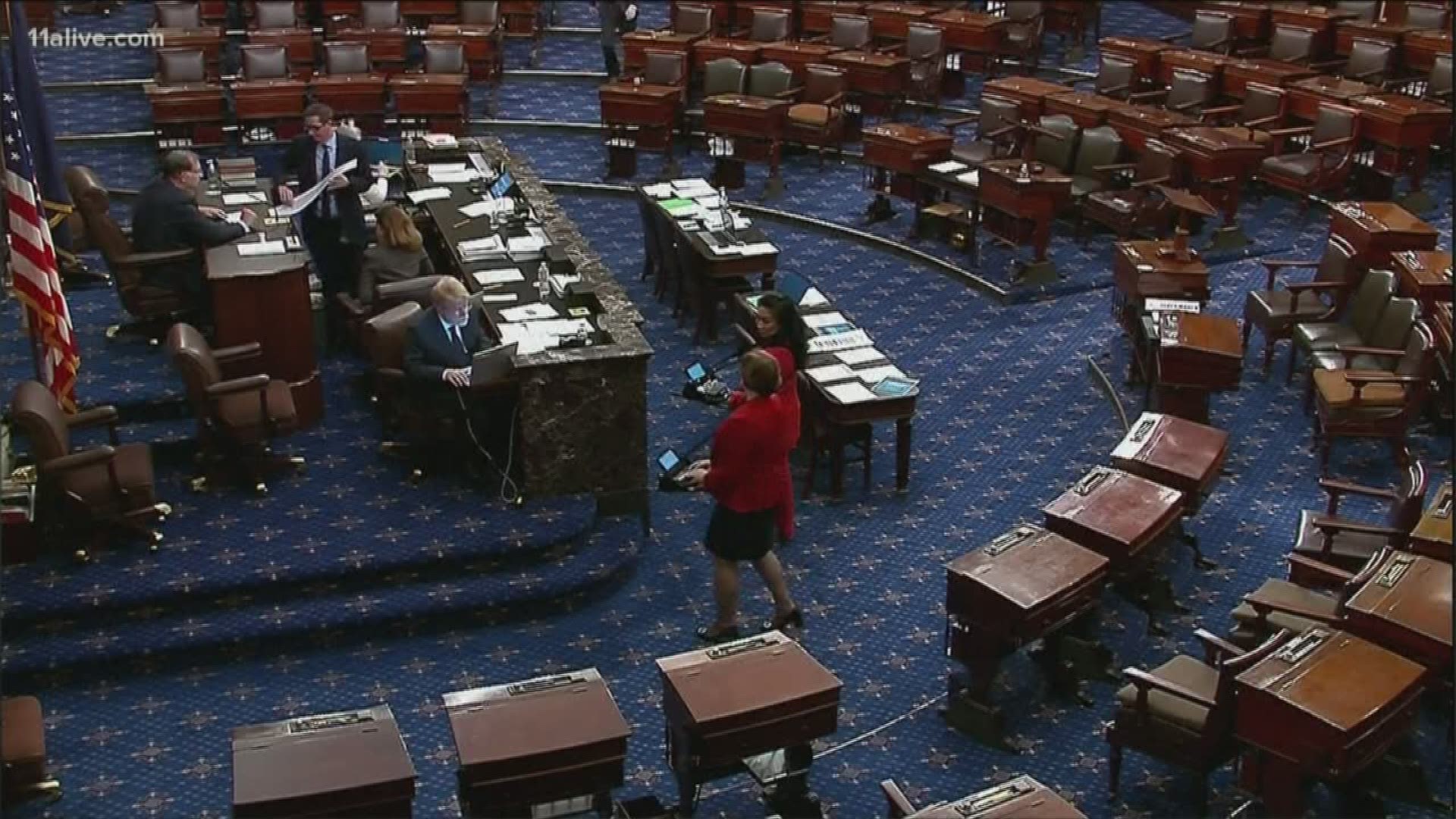ATLANTA — The Senate passed a $2 trillion relief package late Wednesday night on a 96-0 vote as an emergency response to the severe blow to the economy by the coronavirus pandemic.
While much of the total money in the bill is being directed toward the health system fighting the outbreak and to prop up certain business sectors worst impacted by it, a lot is also meant to go to the American people - effectively, all of us.
Here are some key aspects of the bill you're probably wondering about, as well as Atlanta financial expert Jini Thornton's answers to some of your direct questions:
Q: How much money will I get, and when will I get it?
You're going to hate this answer, but: technically, right now, nothing, and never. The bill hasn't yet actually passed the House (which has a vote scheduled for Friday), and so it hasn't yet been sent to President Trump to be signed into law.
But those things are expected before the week is over. When they happen, here's what you'll get - $1,200 for every person in the country (who make under $75,000) and $2,400 for married couples (who make under $150,000 together). Additional $500 payments will be made for every child you have.
There's a potential catch, though, that the Senate bill doesn't clarify and that government officials haven't directly addressed - because the money is written into the bill as a tax rebate, it's based off 2019 tax returns (or, if you haven't done that yet, 2018). So if you haven't filed your taxes recently, you may not get a check.
"Those without 2018 tax filings on record could potentially affect mailings of stimulus checks," the IRS website says.
People making more than $75,000 or couples making more than $150,000 will also get money, but it will be reduced the more they make.
As for when you will get the money, Treasury Secretary Steven Mnuchin said yesterday they will be trying to get payments out within three weeks.
These are questions from viewers and answers from Jini.
Q: Who will benefit from the expanded unemployment under the stimulus package?
Jini: "I'm really excited about the expanded unemployment benefits. First of all they're going to expand it an additional 13 weeks, folks are also going to be eligible for another $600 per week. But I think the most important part of the bill is all of these subcontractors - independent contractors (freelancers) - these folks who are typically paid by 1099 who normally are not eligible for unemployment will be under this package."
Q: What if you're already receiving unemployment benefits and still have no job? Will my benefits be extended? If so, for how long? And does my benefit increase?
Jini: "Well it looks like they will be expanded and it looks like they will increase. Because again that expansion is an additional 13 weeks with that additional $600 per week, so I think people should hold tight just a minute and allow the government to get settled to be able to push out those additional benefits to folks."
Q: I am a small business owner 70 years young. How do I go about setting funds because I haven't been able to work for two weeks?
Jini: "Well you know there's about $367 billion in loans for small businesses, $10 billion in emergency grants alone - so we're going to have to just sit tight to figure out how small businesses and entrepreneurs are going to be able to apply for those funds."
Q: Will medical bills relating to COVID-19 be forgiven for those with no health insurance?
Jini: "Well I think that is still yet to be determined. I have not seen anything or read anything specific to that, but I just cannot imagine with the pressure, the financial pressure that this disease has put on people specifically, that there isn't going to be some relief for that."
MORE CORONAVIRUS HEADLINES

